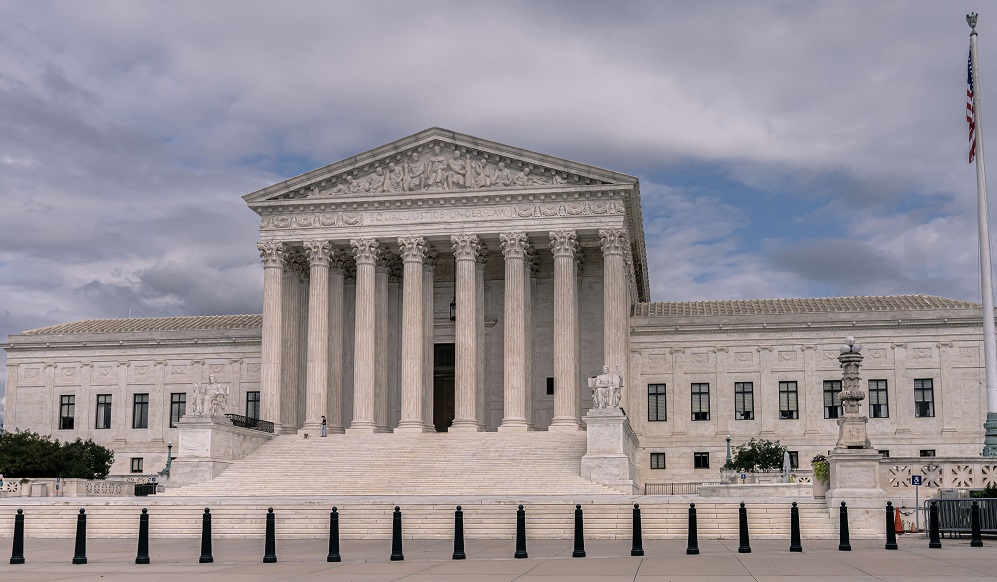The Democrats broke new ground when the White House coordinated with DAs and DOJ to bring multiple prosecutions against former president and current Candidate Donald Trump. When asked about Constitutionality, SCOTUS responded with a decidedly constitutional response.
Emphasis, mine.
A federal grand jury indicted former President Donald J. Trump on four counts for conduct that occurred during his Presidency following the November 2020 election. The indictment alleged that after losing that election, Trump conspired to overturn it by spreading knowingly false claims of election fraud to obstruct the collecting, counting, and certifying of the election results. Trump moved to dismiss the indictment based on Presidential immunity, arguing that a President has absolute immunity from criminal prosecution for actions performed within the outer perimeter of his official responsibilities, and that the indictment’s allegations fell within the core of his official duties. The District Court denied Trump’s motion to dismiss, holding that former Presidents do not possess federal criminal immunity for any acts. The D. C. Circuit affirmed. Both the District Court and the D. C. Circuit declined to decide whether the indicted conduct involved official acts.
Held: Under our constitutional structure of separated powers, the nature of Presidential power entitles a former President to absolute immunity from criminal prosecution for actions within his conclusive and preclusive constitutional authority. And he is entitled to at least presumptive immunity from prosecution for all his official acts. There is no immunity for unofficial acts. Pp. 5–43.
(a) This case is the first criminal prosecution in our Nation’s history of a former President for actions taken during his Presidency. Determining whether and under what circumstances such a prosecution may proceed requires careful assessment of the scope of Presidential power under the Constitution. The nature of that power requires that a former President have some immunity from criminal prosecution for official acts during his tenure in office. At least with respect to the President’s exercise of his core constitutional powers, this immunity must be absolute. As for his remaining official actions, he is entitled to at least presumptive immunity. Pp. 5–15.
I need to read the rest of the decision, but that seems to make it clear enough. Trump (Obama, Clinton, and Biden) has extensive immunity protection for actions while in office. Unofficial acts are not immune.
Decided 6-3 (Kagen, Sotomayor, and Jackson Dissenting – which really means they want Clinton and Obama left Open to prosecution: Biden is incompetent to stand trial so he’s safe).
